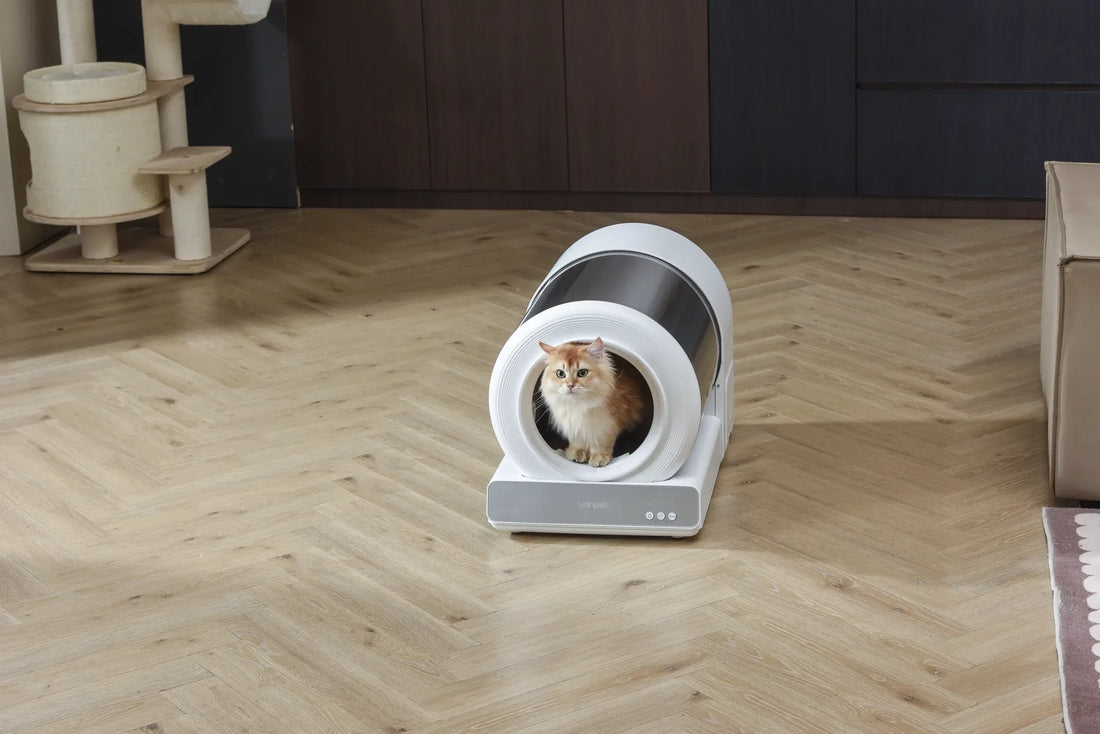If you've ever noticed your cat running out of the litter box, you're not alone. This behavior can be puzzling and concerning for pet owners. Understanding the reasons behind it and knowing how to address the issue can make a world of difference for both you and your furry friend. Let's dive into the possible causes and explore practical solutions to help your cat feel more comfortable and secure.
Why Does My Cat Run Out of the Litter Box?
There are several reasons why your cat might be running out of the litter box. It's essential to identify the root cause to address the behavior effectively. Here are some common factors:
1. Medical Issues
Medical problems are often the primary cause of unusual litter box behavior. Conditions such as urinary tract infections, kidney disease, or gastrointestinal issues can make using the litter box uncomfortable or painful for your cat. If your cat is running out of the litter box, it's crucial to consult a veterinarian to rule out any underlying health concerns.
2. Stress and Anxiety
Cats are sensitive creatures, and changes in their environment can lead to stress and anxiety. Moving to a new home, introducing a new pet, or even rearranging furniture can disrupt your cat's routine and cause them to avoid the litter box. Running out of the litter box might be a sign that your cat is feeling overwhelmed.
3. Litter Box Preferences
Cats can be quite particular about their litter box. Factors such as the type of litter, the size of the box, and its location can influence your cat's willingness to use it. If your cat doesn't like the litter or finds the box too small or inconveniently placed, they might rush out after using it.
4. Territorial Behavior
In multi-cat households, territorial disputes can arise, leading to litter box issues. If one cat feels threatened by another, they might run out of the litter box to avoid confrontation. Ensuring each cat has their own space and resources can help mitigate this problem.
How to Address the Issue
Once you've identified the potential cause of your cat running out of the litter box, you can take steps to address the issue. Here are some practical solutions:
1. Visit the Veterinarian
If you suspect a medical issue, the first step is to consult your veterinarian. A thorough examination can help identify any health problems that might be causing your cat's behavior. Follow your vet's recommendations for treatment and care to ensure your cat's well-being.
2. Create a Calm Environment
Reducing stress and anxiety in your cat's environment can help them feel more secure. Provide a quiet, safe space for your cat to retreat to, and try to minimize changes in their routine. Using calming products, such as pheromone diffusers, can also help alleviate anxiety.
3. Optimize the Litter Box Setup
Ensure that your cat's litter box meets their preferences. Choose a litter that your cat likes, and make sure the box is large enough for them to move around comfortably. Place the litter box in a quiet, accessible location, and clean it regularly to keep it fresh and inviting.
4. Provide Multiple Litter Boxes
In multi-cat households, it's essential to provide enough litter boxes for all your cats. The general rule is to have one litter box per cat, plus one extra. This can help prevent territorial disputes and ensure that each cat has access to a clean, comfortable space.
Preventing Future Issues
Preventing your cat from running out of the litter box involves addressing the underlying causes and creating a supportive environment. Here are some tips to help you keep your cat happy and healthy:
1. Regular Veterinary Checkups
Regular veterinary checkups are crucial for maintaining your cat's health. Routine exams can help detect potential health issues early, allowing for prompt treatment and prevention of litter box problems.
2. Maintain a Consistent Routine
Cats thrive on routine, so try to keep their daily schedule as consistent as possible. Feed them at the same times each day, and provide regular playtime and affection to help them feel secure.
3. Monitor Your Cat's Behavior
Pay attention to your cat's behavior and look for any signs of stress or discomfort. If you notice changes in their litter box habits, address the issue promptly to prevent it from becoming a long-term problem.
4. Provide Enrichment and Stimulation
Keeping your cat mentally and physically stimulated can help reduce stress and prevent behavioral issues. Provide toys, scratching posts, and interactive play sessions to keep your cat engaged and happy.
Understanding why your cat is running out of the litter box is the first step toward resolving the issue. By addressing the underlying causes and creating a supportive environment, you can help your cat feel more comfortable and secure. With patience and care, you can ensure that your feline friend stays happy and healthy for years to come.













